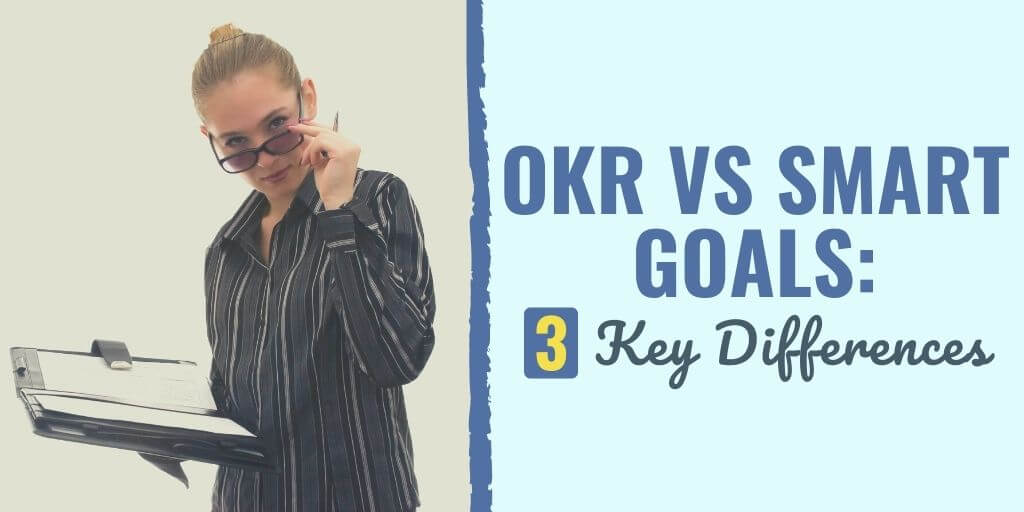There might be affiliate links on this page, which means we get a small commission of anything you buy. As an Amazon Associate we earn from qualifying purchases. Please do your own research before making any online purchase.
Up until I was about 20, this is what my goals would look like:
“Tomorrow I am going to start. It’s a whole new week and I’ve had enough of getting poor results. I’m serious, everything is changing tomorrow.”
This goal-setting strategy applied to many areas of my life, whether I was trying to eat a healthy diet and start exercising or I was heading into a new school year with a fresh boost of motivation to definitely read every text book page assigned, spend Sundays studying for each class, and go above and beyond to be the best student I could be.
And whether it was the next day and I found a cupcake in my fridge or it was one week into school and I was staring blankly at a page of block text about mitochondria, I said forget it, I’ll do it some other time.
But now that accepting accountability for my results has come with age, understanding and living out the process to be successful has become a fundamental aspect of my life, and setting goals that are not so easily forgotten has been a key part of that.
We are very familiar with SMART goals and the areas in life where SMART goals can be applied to ensure success–and at this point, you’ve probably experienced results from setting some SMART goals of your own. And while SMART goals create an effective process for improving many areas of your life, this is not your only option for setting goals.
So in this article, we are going to review SMART goals, but we will also introduce a different way of making necessary advancements through OKRs.
OKRs and SMART goals are both frequently used to achieve a desired outcome. While you can use either to increase your chances of success when you want to make a positive change, it’s essential to understand the difference between the two so you know when you should use one methodology over the other.
Let’s get started by introducing OKR goals.
What Are OKR Goals?
OKR goals refer to Objectives and Key Results. As suggested by its name, this simple methodology defines and tracks the objectives that you want to achieve to ultimately reach your desired outcome. And like SMART goals, OKRs help align and engage your actions to work toward your measurable goals, which can result in the achievement of major accomplishments.
OKRs are ideal for goal-oriented businesses that thrive on successful innovation. They are perfect for maintaining a well-oiled communication machine among each element of a group because OKRs clarify exactly what needs to be done and who is doing what to achieve it. This can increase productivity among the group, as studies have shown that people are more engaged and efficient when they’re clear on the significance of the task they’re doing and exactly what the desired outcome is.
You can apply OKRs on an individual level, but they’re often used in collaborative processes. Instead of managers setting goals for the group and assigning relevant tasks to each person, OKRs rely on individuals and teams within an organization to create their own refined objectives that align with the company-wide, higher-level goals.
What’s more, OKRs are constantly evolving through review and revision as the operating environment progresses. These bigger goals are valuable because they align everyday tasks with a clear larger objective, ensuring a regular process of reviewing progress and altering approaches.
There are two important components of OKRs, your desired objective (qualitative), and your measurement tool, or key results (quantitative). You need to achieve the quantitative part to make progress toward the qualitative bigger picture. Let’s look at each of these:
Objectives should be:
Key Results should be:
Let’s look at an example of an OKR goal (that would be considered a SMART goal-setting sin).
Objective: Be more profitable.
This sounds like a pretty common, yet vague, objective for many companies. But how does this objective impact the everyday efforts of, say, the receptionist?
When implementing OKRs, one would consider what people at all levels of the organization could do to help achieve the goal. So, what could a receptionist achieve in the next _____ to help the company be more profitable? When using OKRs, each team member’s efforts are focused into smaller steps that play a part in the bigger picture.
Key Result: As measured by acquiring new business.
As the first point of contact, a receptionist can set a goal to obtain one new referral per month by interacting with existing clients and encouraging them to connect their friends or family to the business. A receptionist can have a major impact on a business’s bottom line through locking in new members, which could be one key result to help achieve the main objective.
You can see how OKRs can help groups all focus on achieving one goal by applying their unique talents. Now let’s review what SMART goals are.
What Are SMART Goals?
SMART goals are those that are Specific, Measurable, Achievable, Relevant, and Time-Bound. Using this goal-setting framework can help you turn your vague dreams into concrete intentions as it describes the characteristics that infallible goals need to have. The idea is that SMART goals are effective because they lay out exactly what you need to do to achieve your desired result. Your SMART goals help you create a plan and then commit to it.

Let’s look at each of the components of a SMART goal.
Specific
Specific goals answer the questions who, what, why, where, and when? Making goals that are well-defined and unambiguous will help you align your focus toward achieving your desired result.
Measurable
It is a popular saying in business that if you can’t measure it, you can’t manage it. Measurable goals allow you to track your progress until you reach your goal, which can help build excitement and help you maintain momentum. Having measurable goals also gives you a sense of accountability that is needed to succeed.
Achievable
You don’t want your goals to be either too hard or too easy. If they’re out of reach, you’ll get frustrated when you’re not successful. On the other hand, if your goals are too easy, you won’t feel challenged and you will get bored.
Relevant
How is reaching your goal going to help you in the long run? You will waste a lot of time by setting inconsistent goals that don’t help you move toward accomplishing something bigger. You need to make goals that matter, otherwise they will be easy to abandon.
Time-Bound
Without a deadline, you could be working toward one small goal for years. Setting a deadline is motivating because it puts some pressure on you to get to work. Your deadlines will prevent your everyday tasks from becoming a priority over your long-term goals.
SMART goals are very structured, which makes them most effective for dedicated individuals who don’t need a lot of wiggle room. When they’re set for larger groups of people, it can be difficult to stay on track.
Let’s look into some more detail of how OKRs and SMART goals differ.
OKR vs Smart Goals: 3 Key Differences
1. Specificity
We know SMART goals are very specific. That’s a huge part of their defining factor, as they create a framework for achieving an exact goal within a set deadline. And, when creating a SMART goal, you have to consider what is attainable in order to specify the desired outcome.
Alternatively, when working toward an OKR goal, you’re focusing on stretch goals and continuous improvement. (To learn more, read this post about stretch vs SMART goals.) In fact, because the objectives are less specific when working toward an OKR goal, you’re only hoping to achieve about 60% of the main objective. The characteristic of being “attainable” isn’t present, which is what makes OKRs more vague and just out of reach.
There is room to experiment with an OKR goal as you’re focusing on a more aspirational vision while increasing your potential and pushing your limits. SMART goals, on the other hand, don’t invite wiggle room for trial and error or failure.
2. Initial Time Requirement
SMART goals require a lot of planning up front. You need to think about how you’re going to accomplish your goal, how you will measure your progress, and what will keep you motivated along the way. You then have control over how long you will allow yourself to achieve the goal. The bigger the goal, the longer it will take–but this is often broken down into smaller, more manageable pieces.
On the other hand, OKR goal-setting takes a quicker and simpler approach in the beginning. A company sees where they have room for improvement, figures out what it will take to get there, and implements the goal. This is an ongoing and flexible methodology that leaves room for experimentation and risks and failure along the way.
So while a SMART goal will take a lot of planning in the beginning, even if achieving the goal takes a relatively short amount of time, you can come up with an OKR goal quickly and never actually fully achieve it.
3. Goal Maker
OKRs can be set by individuals, but they’re more widely used by groups or entire companies. These goals direct how you approach your daily work, whether your OKRs are your own or they’re coming from a different area of your company. But while it can be personally beneficial to work toward OKR goals alone, doing so won’t necessarily have a large impact on your organization.
If you're working in a large group context that includes various functional levels, OKR goals help clarify company-wide goals that everyone is working to meet. They assist companies in maintaining focus on an organizational level and improve company-wide collaboration.
When made in a large group setting, OKRs create a vision for every team member to work toward in their own unique way. And, unlike SMART goals, OKRs help facilitate ongoing discussion of new opportunities for growth and focus on effective collaboration across teams by sharing progress, problem-solving, and systemizing best practices for the entire group.
Now, you can certainly have SMART goals in a team environment, but these goals are so specific to an individual’s unique vision and fueled by one’s own motivation that SMART goals are typically made for just oneself or a small group. Setting SMART goals for an individual is a great way to accomplish big personal achievements because it doesn’t focus so much on creating alignment within a group’s efforts and instead it looks more at specific personal growth.
Final Thoughts About Key Differences Between OKR vs SMART Goals
SMART and OKR goals can both be effective ways to achieve desired results in your life. You just need to sort out which type of goal is more appropriate to implement when you see an opportunity for improvement. Hopefully this guide offered some clarity on how you can best use these types of goals to your advantage.
If you want to learn more, here are posts that could help:
Finally, if you want to take your goal-setting efforts to the next level, check out this FREE printable worksheet and a step-by-step process that will help you set effective SMART goals.

Connie Mathers is a professional editor and freelance writer. She holds a Bachelor's Degree in Marketing and a Master’s Degree in Social Work. When she is not writing, Connie is either spending time with her daughter and two dogs, running, or working at her full-time job as a social worker in Richmond, VA.


